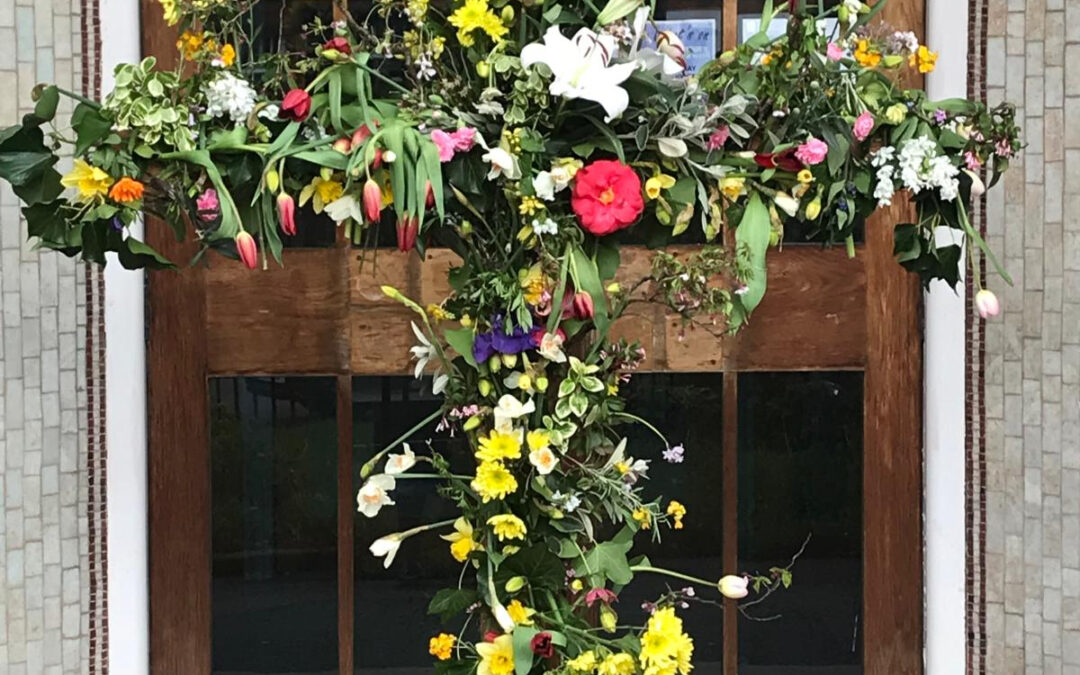On Tuesday of Holy Week, my son Conor was married in a civil ceremony, which by law, is entirely secular. As I listened to the exchange of vows, I understood why my father, following my own civil wedding almost 30 years ago, felt the need to include 1 Corinthians 13v4-13 in his father of the bride speech. He politely praised the choice of music and readings in our carefully crafted ceremony, and then said there was only one thing missing. This gave me a shock, thinking we had broken some critical wedding protocol.
‘There was no mention of God,’ he said, ‘and I think we should bring Him into this.’ My father read the verses slowly and I understood love in a new way – not simply as a feeling, or an expression of connection, but as a wholeness; ‘Love never fails. But where there are prophecies, they will cease; where there are tongues, they will be stilled; where there is knowledge, it will pass away… when completeness comes, what is in part disappears.’ Then in verse twelve, ‘For now we see only a reflection as in a mirror; then we shall see face to face. Now I know in part; then I shall know fully, even as I am fully known.’ 1 Corinthians 13:8-12.
The journey of following Jesus, of getting to know Him as He knows me, is a life’s work. For me, this journey has included exploring different faith traditions as expressions of my identity as a child of God.
In my work, I am a member of an inter-faith dialogue group called ‘Belief in Mediation and Arbitration’ which meets regularly to explore how the Scriptures of the three Abrahamic traditions address matters/issues which may come to us for mediation. Examples would include issues of… property and inheritance, marriage and divorce, or family and the raising of children. I am often humbled by others’ ability to aptly quote from their Scripture during our discussions. But when I cannot immediately recall a relevant verse or story, I can always rely on the phrase… ‘As Christians, we can always ask… what would Jesus do?’
My mother, aged ninety, managed the journey from Galway to London for my son’s wedding, and during her visit we attended a Good Friday reflective service led by a Lay Reader, a Roman Catholic Easter Vigil Mass, and an Anglican Easter Sunday celebration. We sang ‘Thine be the Glory’ on Saturday night holding candles we had lit from the newly blessed Pascal candle, and sang the same words again on Sunday morning, as we lined up to decorate the 9ft bare wooden Easter cross with spring flowers. Our offering included daisies and tulips from the wedding flowers. The cross was then placed outside the church to tell the world that Christ is risen.
My church home group has prayed for my parents over the years, without ever meeting them; prayers for safe travels, recovery from illness, and in my father’s case, for an easy passing. They greeted my mother on Easter Day as though they knew her, and the Associate Vicar, who is a woman, held both her hands and thanked her for coming to our church, and for taking / sharing in Communion with us.
On our return to Galway, my mother was recounting her wedding and Easter adventures to her neighbours. We had realised that the Eastern Orthodox and Roman Catholic Easter Sunday coincided this year, which only happens every few years. The neighbours recalled a long-ago holiday in Greece when they had attended a Greek Orthodox Easter Vigil, and how they loved the exchange of greetings there on Easter day of ‘Christ is risen’ and the reply, ‘He is risen indeed.’
My mother showed them a photo of us standing by the flower-laden cross outside the Protestant church that years ago she would have been nervous to enter. ‘They have a nice tradition over there,’ she said. ‘The flowers are to show that we are forgiven. Isn’t that lovely?’
Sharon Crooks lives in London and works as a mediator, conflict coach and trainer. She is a trustee of WMS, a community mediation service, and is passionate about helping people to communicate better to create peace in all its fullness.
Please note that the statements and views expressed in this article of those of the author and do not necessarily represent those of Contemporary Christianity.


Recent Comments